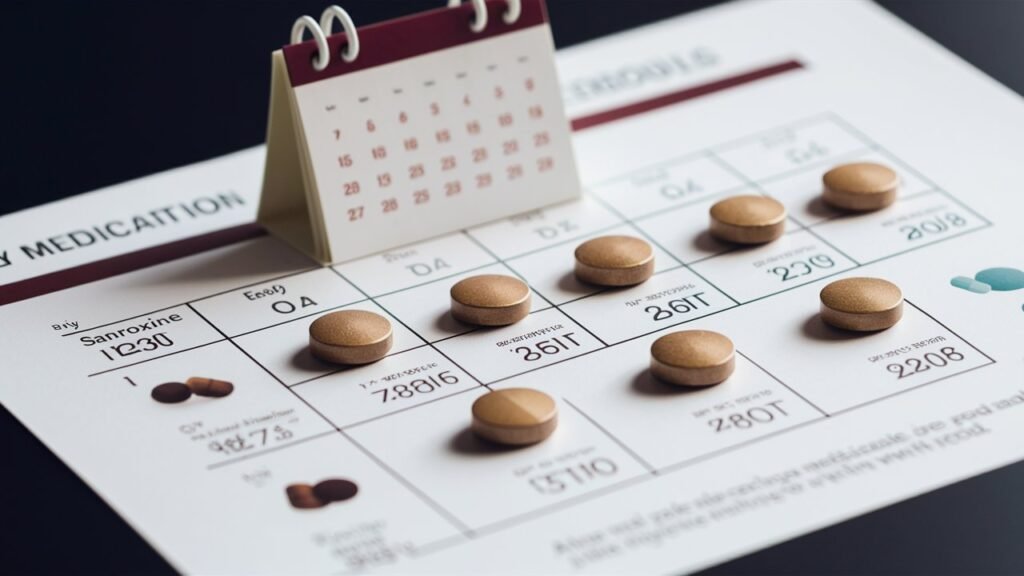Sanroxine (Sulfasalazine): Uses, Benefits, and Side Effects

Introduction
Sanroxine, a form of sulfasalazine, manages IBD, particularly ulcerative colitis, and also treats Crohn’s disease. Therefore, this drug effectively functions to manage the symptoms and Sanroxine assists the people with IBD to have a better living standard since it works on yielding a positive influence in the process of inflammation on the GI tracts. Therefore, this guide provides the common facts of using Sanroxine and its effectiveness, potential side effects, and proper usage.

Understanding Sanroxine (Sulfasalazine)
Sanroxine is a medicine that contains sulfasalazine that falls among amino salicylic acids. Because it reduces inflammation, the immunity response and bacteria that may worsen the illness, the diet is suitable for IBD. This multiple strategy also help in controlling the symptoms of the patient of diarrhea, abdominal pain and rectal bleeding.
How Sanroxine Works
Sanroxine’s effectiveness stems from its three primary actions:Consequently, Sanroxine works as it acts mainly in three ways:
- Anti-inflammatory: This action helps prevent inflammation of the lining of the small intestines and/or the colon.
- Immunosuppressive: By sustaining antibody function, Sanroxine controls the immune system’s aggressiveness.
- Antibacterial: Additionally, it targets specific bacteria that could trigger IBD flare-ups.
Who Should Use Sanroxine?
sanroxine is avascript; therefore, patients suffering from ulcerative colitis or crohn’s disease that are either adults or children can take it. It is in relation to food allergy that your doctor will identify the correct dosage and the approximate period of use that will correspond to your condition.

Dosage and Administration
Doctors adjust Sanroxine dosage based on the severity of your condition and your response to the medication. • For acute flare-ups, doctors prescribe larger doses for patients with severe symptoms, while those with less severe cases receive smaller quantities.
• For maintenance, doctors prescribe a small amount to sustain remission and prevent flare-ups. In general, patients take Sanroxine orally with food to avoid upsetting their stomach. They should only take the prescribed quantity and follow their doctor’s recommendations.
Potential Side Effects
It also has side effects as any other in the market in form of small and big plastic like substances inform of pills and tablets. Commonly reported issues include:
- Nausea may occur as a side effect.
- Vomiting is another potential reaction to the medication.
- Diarrhea can also be a common issue.
- Headaches may affect some patients.
- Dizziness might be experienced by others.
- Skin rash is a less common but possible side effect.
Still, they also can get the more unpleasant, less frequent, and seldom happy side-effects. Report any changes, symptoms, or concerns to your doctor immediately.

Precautions and Warnings
Report your medical history, including any allergies, liver or kidney diseases, and blood disorders, to your doctor before starting Sanroxine treatment. Key considerations include:
- Pregnancy: Large amounts of Sanroxine are not recommended during pregnancy; however, it is generally considered safer than other drugs.
- Breastfeeding: Consult your treating physician regarding the use of Sanroxine while breastfeeding.
- Drug interactions: Ensure your doctor records all current medications to avoid interactions with Sanroxine and prevent any incompatible treatments.
Impact on Fertility
It is stated that negative effect of Sanroxine on fertility was visualized whereby there marked finding on sperm concentration from males. Any queries or concerns regarding fertility in relation to chronic disease should be addressed to the doctor.
Monitoring While on Sanroxine
It is also recommended that Sanroxine users should often visit a doctor to know how effective the drug is and other symptoms that may be displayed by the user of the drug. The aforementioned examinations include blood counts, liver, and kidney function tests Which are the most often monitored parameters by a doctor.
FAQ’s
Can I stop taking Sanroxine abruptly?
No, always taper off the medication gradually under your doctor’s guidance.
Is it safe for long-term use?
Long-term safety varies by individual. Discuss your situation with your healthcare provider.
Can I use over-the-counter medications with Sanroxine?
Consult your doctor before combining Sanroxine with any over-the-counter drugs.
Will Sanroxine cure my IBD?
it’s manages IBD symptoms but does not cure the disease.
What if Sanroxine is ineffective for me?
There are alternative treatments available. Consult your doctor to explore other options.
Conclusion
Sulfasalazine (Sanroxine) is one of the major drugs that manage IBD and reduce the severity of its symptoms. The understanding of these aspects will help you decide concerning the treatment and the right or wrong usage of the drugs. We kindly remind you that this guide does not replace advice from a healthcare professional. Remember that these are approximate guidelines, and always discuss their necessity with your doctor.



